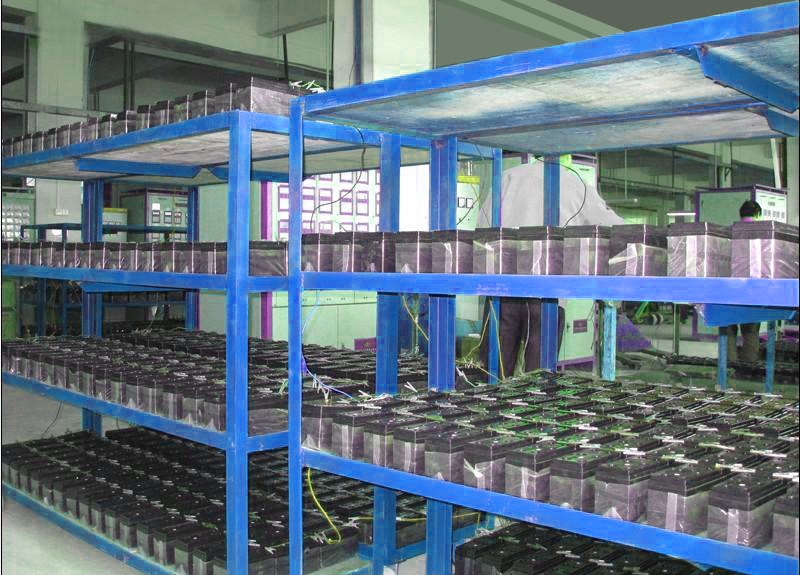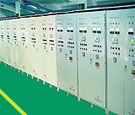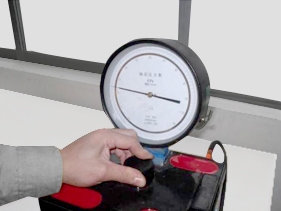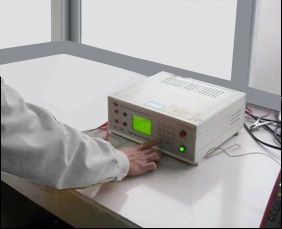ISO 9001 standard has been implemented all the way through the manufacturing processes to make sure the reliability and quality of VRLA rechargeable battery. The product defect ratio has been strictly controlled in accordance with PPM standard. In the meanwhile, we are also visioned to adopt new and advance equipment to our VRLA battery production, which can help us to maintain our product at a higher level of quality assuredly
QA/QC
Professional Training Course program to enhance our QA/QC¡¯s technical expertise and focus on quality control.
Courses includes following:
Incoming Quantity Control
In-process Quantity Control
Outgoing Quantity Control
ISO 9001 certified production process
Shipment Inspection
Equipment maintenance & update
Quality Test
The following is a list of test that SES Battery VRLA/SLA battery go through to ensure quality.
Rated Capacity Test

Batteries are discharged at the 0.3C rate. After 150 minutes of continuous discharge the battery voltage under load must be 1.75 volt/cell to pass.
High Load Test A load of 2C amps is applied for 5 minutes while the terminal voltage is monitored. To pass, the voltage must be >11.88 volt/ per battery.
Visual Inspection
Batteries are inspected for proper appearance of battery case, terminals, seals, markings, and the absence of electrolyte leakage. Several samples each day are checked for compliance with specified dimensions and tolerances.
Battery Capacity Test

Medium Load Samples are fully charged, then discharged at ambient temperature at the 0.2C rate to a final voltage of 1.7 volt/cell. The discharge time must be no less then 4 hours.
Capacity Test ¨C High rate discharging
Fully charged batteries are discharged at 77¡ãF (25¡ãC) at the 2C rate to an end voltage of 1.35V/cell. The expected discharge time is >15 minutes
Self-discharging test
Fully charged batteries are stored for 2 1/2 weeks at 131¡ãF (55¡ãC). A discharge test performed at ambient temperature applying a load of 0.2C rate to 1.7V/cell must yield a run time of at least 3 hours, i.e. the capacity loss resulting from self-discharge must not exceed 50%.
Vibration Test
Sample batteries are subjected to vibration is any direction at the rate of 2000 cycles per minute and amplitude of 0.1 inch (2.5mm) for 2 hours. No signs of damage, leakage, or change in electrical characteristics are expected.
Overcharge Test
Fully charged batteries are overcharged at the rate of 0.1C amps for 48 hours and then is expected to produce a run time of 8.5 hours, or at least 95% of initial capacity, and an absence of problem signs.
Valve Pressure Test

A fully charged battery is submerged in a tank filled with mineral oil and charged at 0.4C amps. This overcharge is to demonstrate the proper functioning of the safety relief valve. The release of excess gasses through the vent is demonstrated by bubbles rising from the battery
Cycle Life Test
At an ambient temperature of 77¡ãF (25¡ãC) sample batteries are discharged at the 0.2C rate to 1.7V/cell and recharged at the 0.25 rates up to 2.5V/cell until charge current drops 0.01C amps. At least 200 cycles must be obtained before the capacity drops below 60% of initial capacity.
QA Test Centre

Test centre is our facility of performance tests for raw materials, semi-finished products, finished products shelf life, safety performances, etc.
Reference Standard
JIS C
IEC 896-2
BS6269
|

